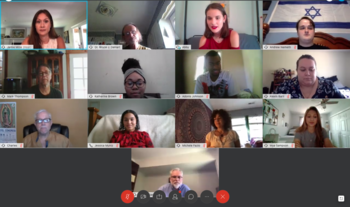
When I became the program director for REACH in January, I had so many ideas about how to structure the Summer Research Exploration Program. The grant specified the summer experience for students (Fellows) accepted into REACH as a way to prepare them for the research that lay ahead in archives and other repositories of their choosing. In total, the Summer Research Exploration Program was initially planned for two weeks, and then Fellows would be sent off for two more weeks to see what they could uncover about the various topics they selected. Ah, the heady days of January and February, when 2020 had just begun, and I had such plans…and then came March. As a result of the pandemic and all of the precautions and limitations that it created, I had to completely rethink the Summer Research Exploration Program. I felt terrible for the Fellows that were promised research opportunities that would take them out of their home communities and expose them to new places and the exciting sources those places held for them and their research.
I am so proud of our Pembroke Mellon REACH Fellows! They met the challenges of this altered format with great energy and scholarly acumen. We spent eight days in total on WebEx, learning from each other and amazing visiting scholars including Alejandra Dubcovsky (UC-Riverside), Mark Rifkin (UNCG), and UNCP’s own Abigail Reiter. Fellows read selected articles written by these scholars and engaged in conversations about the research they read. These heavyweights in their field also shared tips about reading sources, graduate school, and work-life balance. In the end, inspired by the days of scholarship and their own explorations in online archives, Fellows presented their research topics and plans. These topics range from COVID’s impact on migrant farmworkers in North Carolina to the activities of Scottish women in the Jacobite Rebellion, from 20th-century topics like Civil Rights, the Holocaust, and Pearl Harbor, to the current, 21st-century issues of stalking on college campuses.
In addition to exploring their own areas of interest, Fellows also received instruction on conducting oral histories and planned a group oral history project that centers on questions of diversity, identity, and what it means to be “American.” In the upcoming months, Fellows will conduct a number of oral history interviews with various individuals in Robeson County and surrounding communities, and we all look forward to what these stories reveal about life in this special part of the world. It is a tremendous opportunity that these Fellows have in hand—they are creating an archive, a resource that can be utilized for generations to come!
Things don’t always go the way we plan, but these Fellows kept an open mind and a great attitude and ultimately made the Summer Research Exploration Program a success.